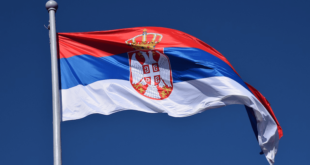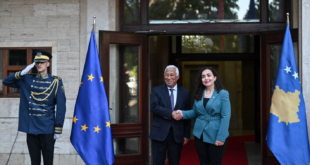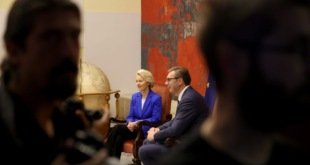Serbian Prime Minister Mirko Cvetkovic said that Serbia is ready to withdraw its genocide suit against Croatia if an agreement is reached for the genocide charges filed by both countries against one another to be mutually and unconditionally dropped.
Speaking at a press conference in Zagreb on Friday, Cvetkovic said “I can give you the stance of the Serbian side, and that is that we are prepared to drop our suit, of course, if an agreement is reached to drop the suits at the same time, without any added conditions,” he said.
On the other side, Croatian Prime Minister Jadranka Kosor was somewhat less direct, saying that the Croatian government could decide to withdraw the suit but has yet to discuss such a possibility.
“I feel the same way and I am speaking in the name of the Croatian government that it is important to clearly stand against the crimes of Milosevic’s politics, the evil of these policies, which were policies of an aggressor towards everyone, and that is not a bilateral question for the Croatian government,” Kosor added.
Croatia filed a genocide lawsuit against Serbia at the ICJ in 1999, and Belgrade filed a countersuit on January 4, 2010.
The presidents of the two countries mentioned for the first time at their meeting in the Croatian coastal town of Opatija in March that an out-of-court settlement could be the solution to the genocide lawsuits. Such a solution has been mentioned on several other occasions.
Cvetkovic and Kosor met on the sidelines of the Annual Assembly of the European Bank for Reconstruction and Development, EBRD, that began Friday morning in Zagreb.
Kosor used the opportunity to give Cvetkovic thousands of pages of translations of EU legislation and other documents necessary for the EU accession process.
“Our support is ongoing and I think it will be even stronger when Croatia becomes the 28th member of the EU,” Kosor said.
Her Serbian counterpart said that Belgrade was content with the fact that Zagreb had made great progress on its EU path but that there are still some unresolved issues between the two countries.
“The most important thing is that a spirit of looking towards the future has been established along with the spirit of cooperation. We do not want to say that all problems have been solved, but there is interest and willingness to resolve them in a constructive manner and in the interest of both sides,” Cvetkovic said.
Kosor and Cvetkovic also discussed the search for missing persons, solving issues related to refugees, intensifying economic cooperation, speeding up the succession process of the former Yugoslavia, and solving border disputes.
 Eurasia Press & News
Eurasia Press & News



